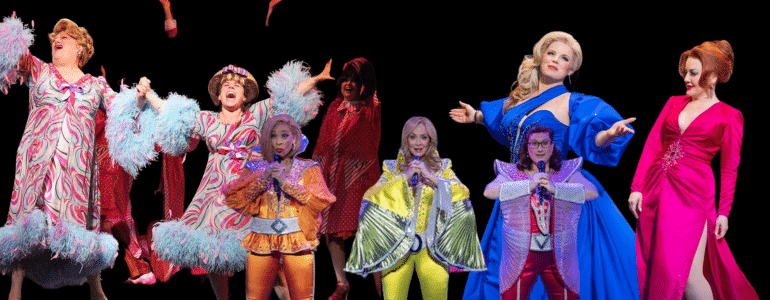3 Reasons Why Crowdfunding Did NOT Take Off on Broadway
It has been 10 years (!) since I crowdfunded Godspell. It remains one of the most difficult things I’ve ever done in this business.
It took two years to put together. It took three law firms. I had to pass a securities exam. Oh, and let me tell you when this SEC slaps your wrist in the midst of your offering, you lose some sleep.
But, like most difficult things, it was also one of the best things I ever did for my business. And my life.
Not only did we fund the production, and help launch the careers of some superstars, but I’m also still friends with many of “People of Godspell”, which is what we called our Producers and Investors (we had over 730 of them!).
We created a family. And it still exists. (That’s pretty common with Godspell, actually, as anyone in it can attest.)
After we successfully crowdfunded the show, using an old regulation called a “Reg A,” Congress passed The Jobs Act . . . which made it MUCH easier for businesses to crowdfund. (Bad timing on my part!)
Everyone predicted an explosion of this type of microfinancing in all industries . . . Broadway and Off-Broadway included.
And it didn’t happen.
I don’t know of ONE Broadway or Off-Broadway production to utilize the new “Regulation CF” since it was passed.
Why?
There are three reasons why.
1. The max money you can raise
Regulation CF was designed for small businesses, so there’s a $5mm cap on how much you can raise. That immediately knocks out 99% of Broadway musicals, leaving only Broadway plays.
Now, ALL Off-Broadway shows are (or should be) well under $5mm. So, this regulation should be in “play” for any commercial producer looking to crowdfund an Off-Broadway show. Still, I don’t know of anyone who has done it. Yet. See below for why.
2. It ain’t cheap to raise small amounts of money.
In our business, there are a limited # of vendors in each area of expertise. There are 3-4 advertising agencies. 2-3 accounting firms. And there are more, but still a limited number of lawyers.
And our lawyers don’t specialize in this . . . which means you’ll need to hire another attorney who does. And that adds to your budget. And smaller businesses don’t want to add to a budget that they were concerned about raising in the first place.
3. You have to work even harder to raise less money.
I remember a consulting session I had once with a writer who launched a Kickstarter campaign. He wondered why he hadn’t raised all this money in the first five days. When I asked him what he had (added) done to promote it, he said, “Nothing. Don’t people just find it in Kickstarter?”
Like anything, just because you build it, doesn’t mean ANYONE will come. You have to spread the word about your offering. And when you’re raising small amounts of money at a time, you have to spread the word every further. We spent a ton of time and money marketing the Godspell offering. That, plus the press we get (that’s where the SEC got saucy), plus my own network, is what led to a successful raise.
Most people don’t want to work that hard. Because it’s true, it IS easier to raise bigger money from fewer people. (That’s why the point of crowdfunding shouldn’t be to raise the money – it should be to raise a marketing army – because all those investors with skin in the game, will shout your show’s name from their e-rooftops!)
(By the way – I gave Kickstarter guys some marketing nuggets and the good news is – he reached his total with three days to spare.)
Wait. Was that three reasons already? But I’m not done. So here’s a BONUS reason why crowdfunding hasn’t taken off on or Off-Broadway.
4. Producers think it makes them look desperate.
This is the one that we need to get over. By not allowing the small investor to participate in the making of theater, we’re ignoring a huge portion of the theatergoing population. Small donors are what got Barack Obama elected. Small investors are what brought down giant hedge funds with the GameStop saga.
And by embracing small investors, whether through crowdfunding or by Producers dividing up $50,000 units into more reasonable numbers, we could launch more new shows, more new voices . . . and market them as well.
– – – – –
If you’re looking for tips on crowdfunding, check out our 8 Tips for a Kick A$$ Kickstarter here, or get my book on How To Raise Money For The Arts Or For Anything.
Podcasting
Ken created one of the first Broadway podcasts, recording over 250 episodes over 7 years. It features interviews with A-listers in the theater about how they “made it”, including 2 Pulitzer Prize Winners, 7 Academy Award Winners and 76 Tony Award winners. Notable guests include Pasek & Paul, Kenny Leon, Lynn Ahrens and more.













